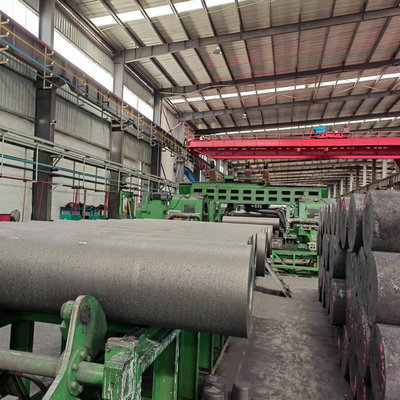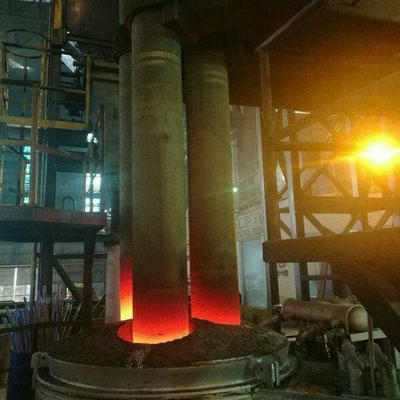Graphite electrodes, often referred to as graphite rods, play a crucial role in various industries due to graphite electrodes properties and versatile applications. 
I:Graphite electrodes are primarily used in electric arc furnaces (EAFs) for steel production.
EAFs are increasingly replacing traditional methods due to their efficiency and lower environmental impact. Graphite electrodes act as conductors of electricity, allowing the conversion of electrical energy into intense heat through an electric arc. This heat is then utilized to melt scrap steel and produce high-quality steel billets, bars, and other steel products.
II:Another vital application of graphite electrodes is in the production of cast iron.
In a similar process to steelmaking, graphite electrodes generate the necessary heat to melt iron and remove impurities. The molten iron is then cast into various shapes, such as pipes, plates, and machinery components. Graphite electrodes enable precise temperature control, ensuring the production of cast iron with desired characteristics and properties.
III:Graphite electrodes are also extensively used in the production of silicon metal and ferroalloys.
Silicon metal, a key component in the manufacturing of semiconductors and solar cells, is produced through the carbothermic reduction process. This process involves the reaction of quartz with carbon at high temperatures. Graphite electrodes provide the necessary heat to facilitate this reaction, resulting in the production of high-purity silicon metal.
IV:The production of ferroalloys, such as ferrosilicon and ferrochrome, relies on graphite electrodes for their high-temperature processes.
Ferroalloys are essential in the steel industry as they impart specific properties like hardness and corrosion resistance to steel. Graphite electrodes enable the fusion of various metal ores with carbon, creating ferroalloys that meet specific alloying requirements.
V:Graphite electrodes find applications in the manufacturing of aluminum.
In the Hall-Héroult process, aluminum is extracted from alumina ore through electrolysis. Graphite electrodes act as cathodes in this process, conducting electricity and facilitating the reduction of alumina into aluminum. This ensures a continuous production of aluminum, making graphite electrodes essential to the aluminum industry.
VI:Graphite electrodes are also employed in the electrochemical industry for processes like electrorefining and electrowinning.
Electrorefining is used to purify impure metals through electroplating, while electrowinning is employed to extract metals from ores. Graphite electrodes provide the necessary electrical conductivity for these processes, enabling the separation, purification, and extraction of various metals.
VII:Graphite electrodes are applied in the production of batteries, specifically lithium-ion batteries.
Graphite is a key component of the anode in lithium-ion batteries, where it stores and releases lithium ions during charging and discharging cycles. The efficiency and performance of lithium-ion batteries heavily rely on the quality and composition of the graphite electrodes used.
VIII:Graphite electrodes are utilized in the glass manufacturing industry.
Glass melting furnaces require high temperatures to transform raw materials into molten glass. Graphite electrodes play a vital role in providing the necessary heat for this process. Their ability to withstand extreme temperatures and high electrical currents makes them ideal for glass melting operations.
IX:Graphite electrodes are commonly used in the EDM (Electrical Discharge Machining) process.
In EDM, a controlled electric discharge between the electrode and the workpiece removes material from the workpiece, allowing intricate and precise shapes to be formed. Graphite electrodes, with their excellent thermal conductivity and electrical resistance, enable efficient and accurate EDM operations.
In conclusion, graphite electrodes have a wide range of applications across various industries. From steel and iron production to the manufacturing of batteries and glass, graphite electrodes are crucial for facilitating high-temperature processes and ensuring the quality and efficiency of end products. Their unique properties make them an indispensable component in numerous industrial processes, contributing to technological advancements and sustainable development in various sectors.
Post time: Aug-10-2023







